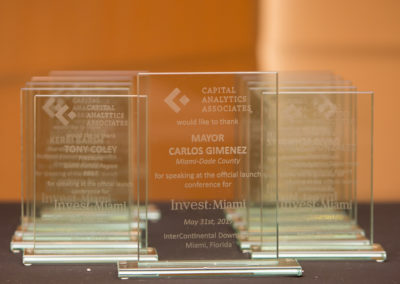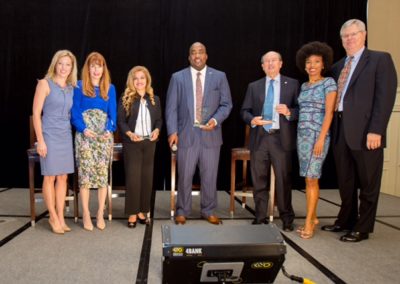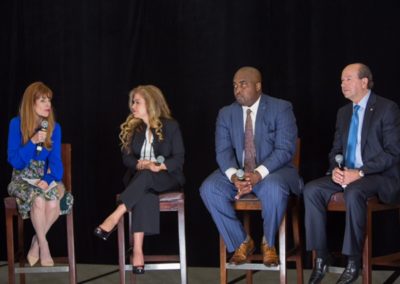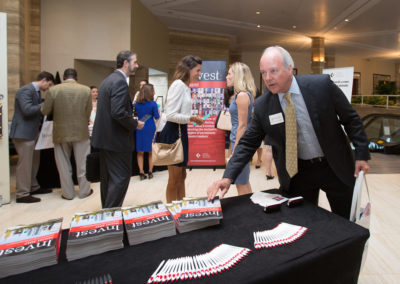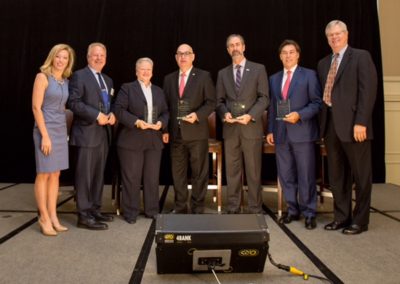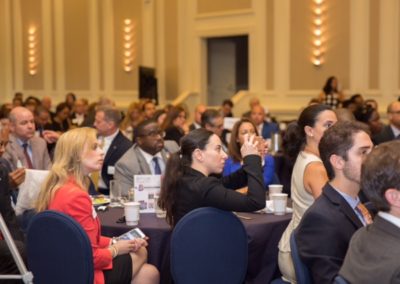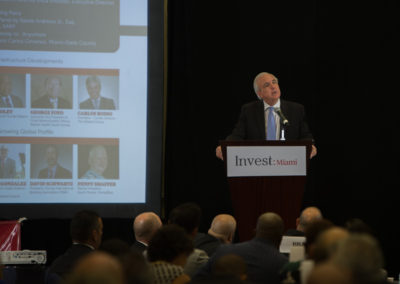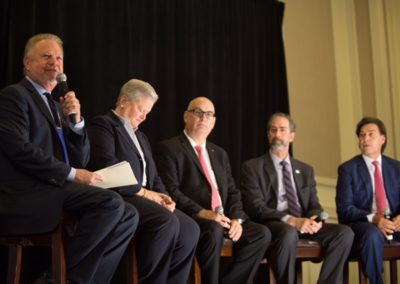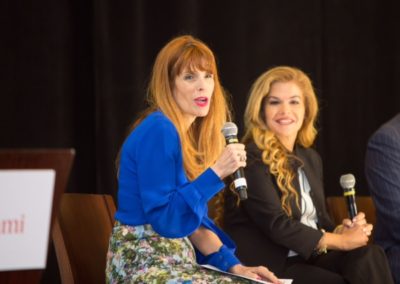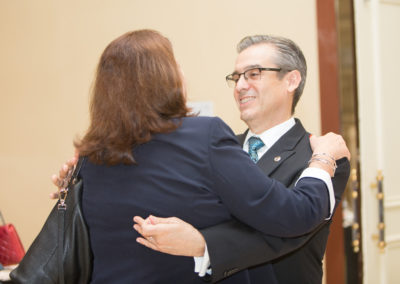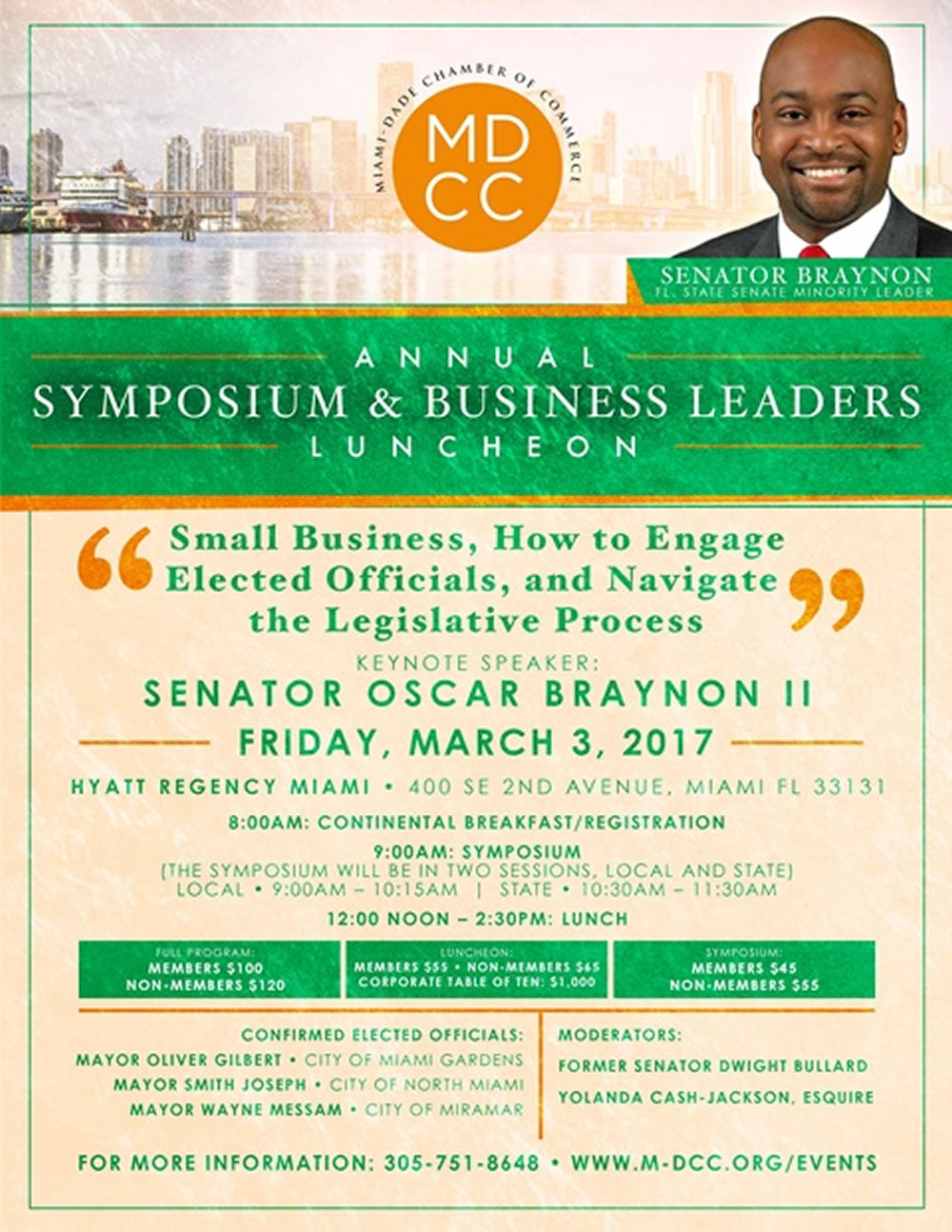Invest: Miami speaks with Congressman Mario Diaz-Balart of the 25th District of Florida
Hialeah’s average household income was $29,249 in 2015 and Miami-Fort Lauderdale-Port St. Lucie’ was $48,333. What policies should be pursued in order to increase growth in Hialeah and narrow the income gap?
The issue is economic growth. The agenda that the House of Representatives put together covers a number of key areas. Economic growth is the first thing. We ask ourselves what we can do at the federal level to incentivize economic growth. We will try and roll back this explosion of new, overreaching regulations. You will also see a lot of action taken administratively to take the boot off the throats of businesses.
Secondly is tax reform. We want to dramatically reduce taxes so that U.S. businesses can be more competitive. As we speak, there are different committees working on legislation. You are going to see a number of bills coming forward. The difference now is that we feel confident that it will get passed.
The first thing we can’t ignore is healthcare. Healthcare is 20 percent of the U.S. economy. Obamacare (the Affordable Care Act) has not only been disastrous, but it has also been a hindrance on the economy. We will reform healthcare by listening to the American people. There are a lot of ideas and we will consider them, but it doesn’t mean we will push all ideas through. We want to rescue people from the atrocity that is Obamacare.
Another key issue for economic growth that will create more than a million jobs is energy. We need to free up the energy resources. It will create jobs and roll back the out-of-control regulations from the Obama administration. The economic impact of all of these issues should really help create an atmosphere where the job creators will be able to flourish. We can’t be satisfied with economic growth of only 2 percent. Economic growth will be priorities one, two, and three of this administration.
What are the main benefits of the Water Infrastructure Improvements for the Nation (WIIN) Act of 2016? What can be done from Capitol Hill to continue protecting environmental conditions that are ever more important for South Florida’s economy?
The committees have worked very hard to create a plan that would help the economy. I’m a senior member of the appropriations committee and we have had substantial success putting a dam around Lake Okeechobee. That has an impact that is crucial for our environment but it is also crucial for our economy. Thankfully we have a lot of water in Florida, but we have a system where we actually dump water in the rainy season, which is very expensive.
We want to help the environment but we also want to help the economy and we have had some success with this. If we are going to continue the restorations, it will be subject to a strong and vibrant economy so that we can afford these projects. It is all interlinked. The Everglades are an environmental issue as well as an economic one. If we continue to accept 2-percent growth, we won’t be able to finance these projects. That is why we need to produce a vibrant economy. I’m optimistic that we will be able to get it done.
What can be expected from the new administration, in terms of trade policy, taking into account the president’s opposition to the North Atlantic Free Trade Agreement(NAFTA)?
President Trump has been clear that he doesn’t want to get into these multi-nation, massive trade deals. He is more focused on doing bilateral trade deals, which I think is something that we can do.
We are looking at NAFTA, and what it has done to Florida, as a mixed blessing. In some parts our economy has been devastated. We have a president who is not content with the status quo and wants to make sure that whatever deals we do are good for our economy. I think that we will be able to do trade deals on a bilateral basis. I’m optimistic that we will be able to move forward.
There are aspects of NAFTA that must be modernized and changed. A lot of people are fearful of looking at these trade deals. Reviewing deals that were made a long time ago is always healthy. We are already talking about it and looking at options to improve trade deals. People can sometimes be scared of change, but I am very optimistic.
Our new administration is unified, and believes that a free market economy is the best system. I am very optimistic and haven’t felt this way in a long time.
What are the main tasks of the Congressional Hispanic Conference and how does it engage the Hispanic community in the political system?
If you look at those impacted by the sluggish economy, it has largely been in the Latino and African American communities. I go back to economic growth. The job creators are small businesses, and a large proportion of those are Hispanic.
We are now heading into a period of growth. I constantly meet with small business owners and a lot of them have told me about the uncertainty that exists out there. Everyday there is a new regulation, but those days are over. Nobody is in a better position to take advantage of the enterprise system than the growing, hardworking, entrepreneurial Hispanic community of the U.S.
What is the best way to increase mutual economic benefits between the U.S. and Cuba without renouncing the demands for democracy?
Look at the results of Barack Obama’s policy. We heard from him and others that had pushed for better relations that this would increase agriculture sales and create economic growth. But the reality is that U.S. agricultural sales are down more than 50 percent. All of the narratives have been false.
It has also been catastrophic for the Cuban people. They haven’t seen repression at this level in 20 years. The number of political arrests, the beatings of opposition leaders and ladies in white has been rising. There’s a third component, it has been negative for the national security interests of the U.S. We are still dealing with a dictatorship. We’ve seen espionage activity and they have intensified their relationship with rogue regimes. All it has done is finance Castro’s monopolies. Until that system changes, you are looking at an insignificant market.
To learn more about the Congressman Diaz- Balart, visit his website at: http://mariodiazbalart.house.gov/
Having just joined Swire from their Hong Kong headquarters, what can you tell us about Miami’s similarities and differences?
Hong Kong is geographically predisposed to be the trade link with China and the rest of the world. You have the protection of Hong Kong with rule of law as well as the professional services that trade requires. It is a great place to be headquartered while you are doing business in China or other parts of Asia. Similarly, Miami is the interface between U.S. and Central and Latin America. It is in a country with reliable laws as well as providing professional service infrastructure – legal, accounting, management consultancy – that a global company would expect. Much like Miami, Hong Kong has one of the busiest ports and airports, serving as an Asian transportation hub, as Miami is for Latin America. They are both geographically well positioned. In Hong Kong, you can quickly reach China, Singapore and Thailand, while in Miami, you can reach New York or Buenos Aires daily.
Brickell City Centre’s Phase One was released in 2017. How have sales for the tower performed?
The buyer profile remains largely overseas, but the mix is forever changing. We have seen a lot of Argentinean and Venezuelan interest, with a slight decline from Brazil. While those interested in buying are still representative of a largely international market, we are beginning to see more interest from people living in New York who are looking for an urban center with a beach. The market, has definitely slowed. There is a whole host of reasons why, from a strong U.S. dollar to political uncertainty in the region. However, what we are seeing, is just a pause for breath, which is healthy for the market. I don’t think there will be a large-scale correction because you can see the breaks already being applied.
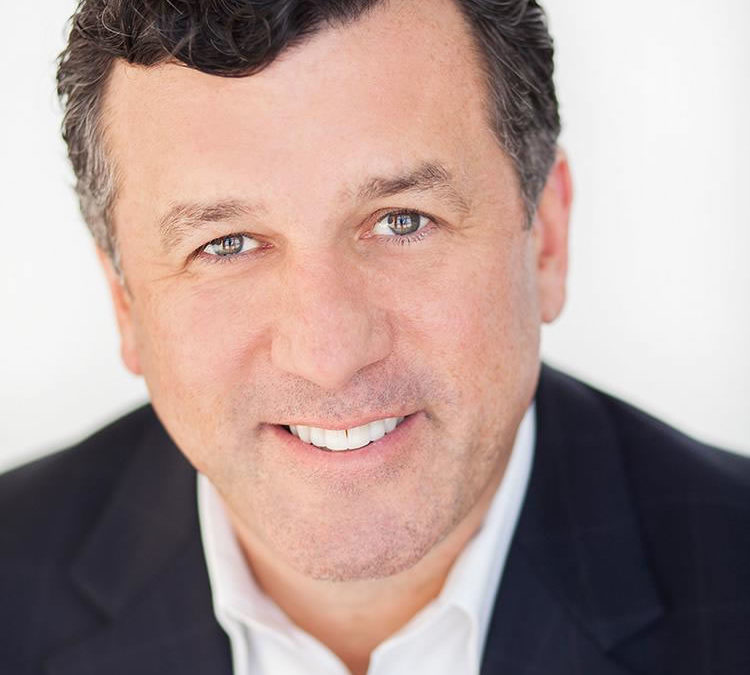
A metro Atlanta investor just made another major sale this year.
Kennesaw, Ga.-based Kinloch Partners LLC sold 28 single-family homes to Atl 2 SF LC LLC, a San Francisco-based 643 Capital LLC and San Francisco-based Street Lane Homes LLC owned company, for $3.2 million dollars.
The homes, located in Southwest Fulton County and DeKalb County, were all purchased and renovated by Kinloch Partners since 2014 and are currently providing positive cash flow from rental income, the company said.
Kinloch co-founder Bruce McNeilage said the consumer demographics indicated there was a significant need for rental homes in the area.
Atlanta Business Chronicle reported in August Kinloch sold 42 single-family homes located in Southwest Fulton County, North Clayton County and Dekalb County for $4.72 million to Jeff 1 LLC, an Austin-Texas based Main Street Renewal LLC and Amherst Holdings LLC owned company.
Atlanta Business Chronicle reported in July 2015 that Kinloch Partners would invest $10 million in existing single-family homes in Atlanta south of Interstate 20.
Kinloch Partners first entered the Atlanta market in August 2011.
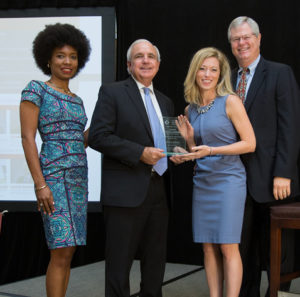 “We will be one of the great cities of the U.S. and the world – it’s up to us to build the foundation,” Carlos Gimenez, mayor of Miami-Dade, told a receptive audience at the launch of Invest: Miami 2017. The launch was attended by some 350 people, 70 percent of whom are C-suite level executives and featured a closing address from Mayor Gimenez as well as speeches from Capital Analytics CFO Albert Lindenberg, General Manager Abby Melone and Executive Director for Invest: Miami Erica Knowles. The event also included two-panel discussions from leading names in the South Florida economy.
“We will be one of the great cities of the U.S. and the world – it’s up to us to build the foundation,” Carlos Gimenez, mayor of Miami-Dade, told a receptive audience at the launch of Invest: Miami 2017. The launch was attended by some 350 people, 70 percent of whom are C-suite level executives and featured a closing address from Mayor Gimenez as well as speeches from Capital Analytics CFO Albert Lindenberg, General Manager Abby Melone and Executive Director for Invest: Miami Erica Knowles. The event also included two-panel discussions from leading names in the South Florida economy.
